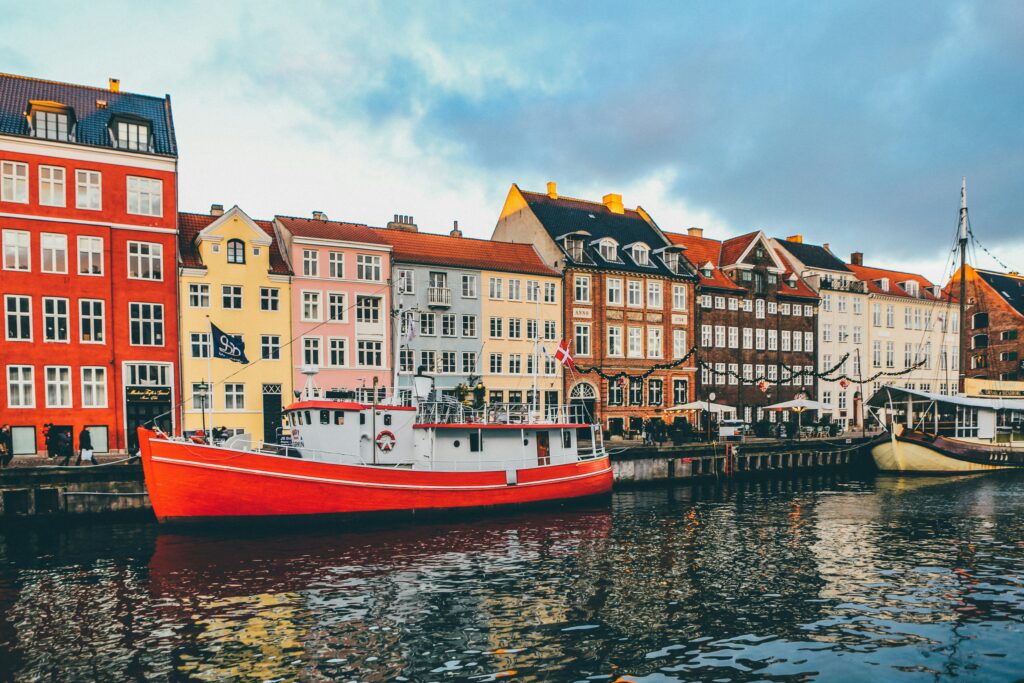
University of Coimbra project aims to make buildings safer and more fire-resistant
One of the aims of the University of Coimbra’s project is to create a “Refuge House”, an infrastructure with a forest fire risk so low
Peggada highlights seven cities that are truly committed to sustainability according to the Global Destination Sustainability Index.
The Global Destination Sustainability Index (GDS-Index) has revealed the 40 most sustainable cities in the world in 2023, based on 69 indicators and four key areas: social progress performance (such as corruption, personal safety and inclusion), supplier performance, destination management (such as communication of sustainability initiatives and accuracy of reporting) and environmental performance.
The cities were analyzed according to their recycling rates, air pollution levels, public transport, number of cycle paths, percentage of eco-certified hotel rooms, local industry supply chain (including airports, event venues, restaurants), among other criteria, which are reviewed annually.
According to the GDS-Index 2023, these are the 20 most sustainable cities in the world:
While the index is geared towards recognizing sustainability efforts in the tourism sector, it also takes into account data that affects city residents, which makes the index a good resource not only for travelers looking for a sustainable destination, but also for future residents looking to settle in a greener city.
This year, GDS-Index increased the diversity of cities, reaching the milestone of indexing 100 destinations worldwide. The addition of 42 new and old cities in 2023 has brought new perspectives from 11 countries, contributing to a truly global representation.
Here are seven cities that stand out in the index.

Gothenburg takes the lead for the seventh time, reflecting its ambition to become independent of fossil fuels by 2030.
95% of the city’s public transport runs on renewable energy and its airport has been certified at one of the highest levels by the Airport Carbon Accreditation scheme, which means it is committed to tracking, reducing and offsetting carbon emissions. A wide variety of restaurants, bars and cafés follow the zero-waste principle and around 90% of hotel rooms are environmentally certified.
Even its festivals, which can be major emitters of carbon dioxide (CO2), are striving to reduce their impact. Way Out West became the first music festival in the world to be certified as sustainable in 2013, serving only vegetarian meals and avoiding single-use plates and cutlery, among other sustainable practices.
Gothenburg is also home to Sweden’s first toy library, Leksaksbibliotek, which teaches young people about the sharing economy and sustainability.
Oslo rose from 10th to 2nd place on the list, making it the second of eight Nordic cities to make the top 10.
In terms of transportation, the city has introduced electric scooters and has biofuel and electric buses, 270 bicycle stations and 5,000 electric vehicle charging stations.
9% of the municipality is made up of green areas and urban parks and 63% is forest, with strict laws regulating its exploitation.
Oslo is full of people and companies working towards a healthy environment, from restaurants serving organic food (such as Maaemo, awarded a Michelin Green Star for its sustainable practices) to hotels with eco-certifications (such as the Thon Hotel Astoria, which reduces its carbon footprint by using renewable energy).
VisitOSLO has developed its own criteria for businesses to receive a “Visit Oslo Responsibly” badge, and has dedicated resources, such as its Green Guide, for tourists who also want to prioritize sustainable options.
At the tourist office, if a visitor asks for advice on getting around, the staff will first give them information on public transport. The tourism board has also developed a course on sustainable business practices for the travel sector, with topics such as reducing wood waste or minimizing noise pollution.
Oslo was also named European Green Capital in 2019 for its long-standing efforts to improve its environmental footprint.

Copenhagen is known as one of the greenest cities in the world, with the goal of becoming the world’s first carbon-neutral capital by 2025.
Only 4% of solid waste is landfilled, 66% of waste is recycled and 74% of electricity comes from sustainable sources. In addition, the city has low levels of particulate matter in the air and the water in the canals is so clean that you can swim in it.
72% of hotel rooms in Copenhagen and 91% of the city’s event venues are currently eco-certified with a third-party certification.
Denmark is ranked as the least corrupt country in the world, and is also one of the happiest, most prosperous and peaceful according to other reports and indexes. What’s more, Danes don’t pay for health care or education – each Danish student receives around 900 dollars a month from the State.
The Scottish city ranks highest of all in the UK on the GDS-Index, where it has been in the top ten since 2016.
Glasgow aims to become the UK’s first carbon-neutral city by 2030 and a world-leading center for sustainable policy and innovation.
In 2023, the city created a low-emission zone, restricting cars in the city center to reduce air pollution. Electric vehicle charging stations have also been built, “smart” LED streetlights installed and bicycle rental systems and new cycle paths created.
The city has more than 90 parks and, on average, eight out of ten children live less than 400 meters from a public green space.
Circular economy schemes have become more popular, for example, with more community centers repairing or lending products.

Around three-quarters of Bordeaux’s vineyards and a third of its tourism businesses are eco-certified, as are the tourist office itself and the organization of the Bordeaux Wine Festival – at this event, emissions are monitored and reported every year, food waste is composted and no plastic items are sold.
The city is full of “zero-kilometer” restaurants (reduced distance between producers and establishments) and second-hand stores, and can be traveled by self-service V3 bicycles, electric buses, streetcars and river shuttles.
According to Olivier Occelli, director of the Bordeaux tourism office, the city’s tourism sector has pledged to have 80% of its stakeholders, from hotels to travel agencies, eco-certified by 2026. To this end, one of the strategies was to develop a program to increase the sustainable skills of local tourism and events players.
Bordeaux tourism officials want travelers to stay longer in the city in the future to reduce its carbon footprint.
Zurich offers the perfect conditions for sustainable events, from climate-neutral excursion activities, sustainability-certified hotels, short distances, a highly efficient public transport network and free bicycles.
By 2050, Zurich aims to reduce its energy consumption to 2000 watts per person and its CO2 emissions to one ton per person annually. Since 2008, the objectives of 2000 watts and the abandonment of nuclear energy have been enshrined in municipal regulations.
The city is committed to achieving these goals by promoting the efficient use of energy and renewable energies through financial incentives and consultancy.
The Swiss city has defined 21 indicators that it considers important for a global vision of the city’s development, including quality of life, safety, equal opportunities for men and women, people with disabilities, work-life balance, integration of the foreign population and interregional solidarity.
In 2017, Goyang became the first city in South Korea to join the GDS-Index and this year it ranks highest of all cities outside Europe.
In 2022, it achieved its first ISO 20121 sustainability certifications, namely for its conventions and events. Currently, the main KINTEX convention center recycles rainwater for the toilets, the lake and the gardens, and uses renewable energies, including geothermal, sunlight and rainwater.
The city has more than 1,000 hectares of parks and water for each 100,000 inhabitants, 424 km of cycle paths and a bike-sharing system with more than 3,000 bikes and 148 stations. Due to the green areas, the level of pollution is also relatively low.
As the number one smart city in Korea, Goyang has applied IoT technologies to monitor air pollution and the stench of biomass, but also to collect waste from street bins.
According to Guy Bigwood, CEO and Chief Changemaker of the GDS Movement, “the evolution and results of the GDS Index demonstrate unequivocally that destination management organizations can and do drive accelerated economic, social and environmental transformation in their tourism and events ecosystems. With this compelling evidence, we hold the key to an optimistic future for travel and events. By amplifying our regenerative action plans and scaling them up with urgency, we pave the way for significant change and progress,” reads the website.


One of the aims of the University of Coimbra’s project is to create a “Refuge House”, an infrastructure with a forest fire risk so low

The Smart City Expo World Congress looked at transportation options in more than 20 European cities. London, Amsterdam, Vienna, Berlin and Helsinki are the ones

The “Neighbourhood in Bloom” project was launched by the municipality of Antwerp to encourage residents to take up gardening and plant trees in order to

This article addresses an action that promotes change towards more inclusive, safe, resilient and sustainable cities and communities, helping toreduce the adverse environmental impact of cities.
 To discover businesses that are actively working to contribute to this Sustainable Development Goal, click here.
To discover businesses that are actively working to contribute to this Sustainable Development Goal, click here. To read news, interviews or tips related to this Goal, click here.
To read news, interviews or tips related to this Goal, click here.Esta publicação também está disponível em:
![]() Português (Portuguese (Portugal))
Português (Portuguese (Portugal))